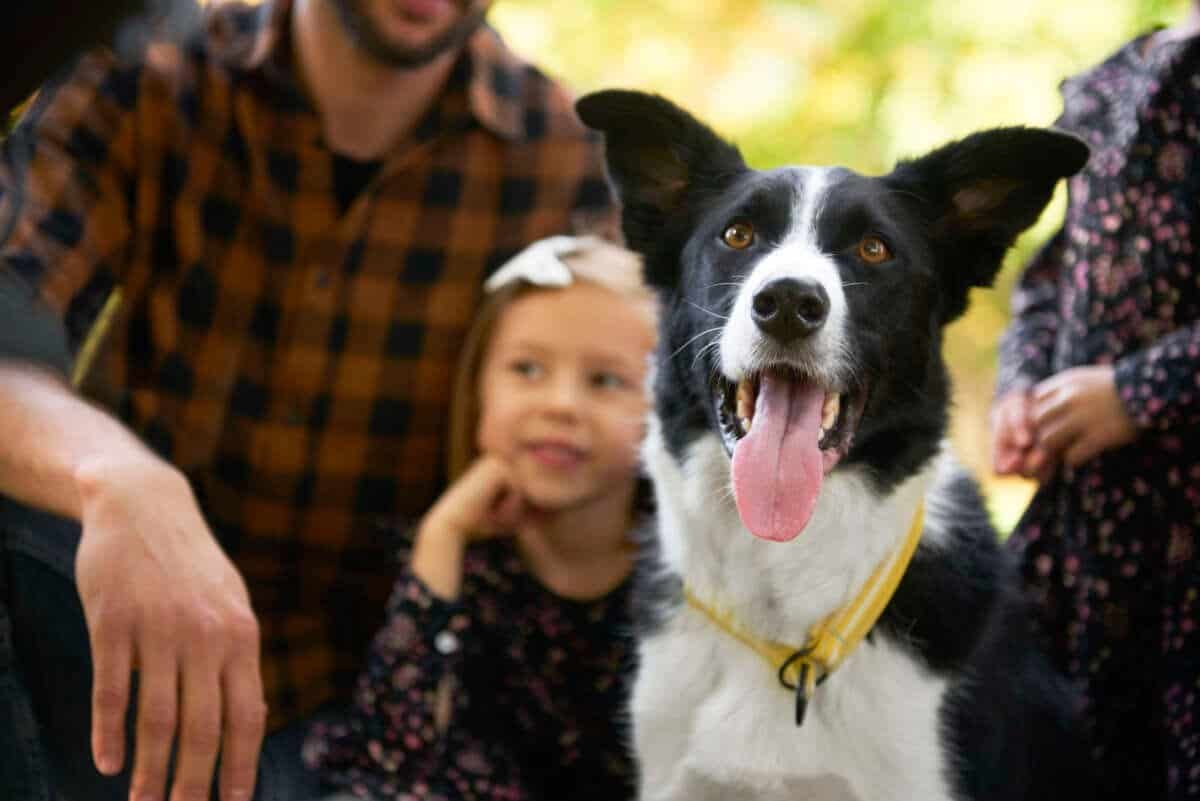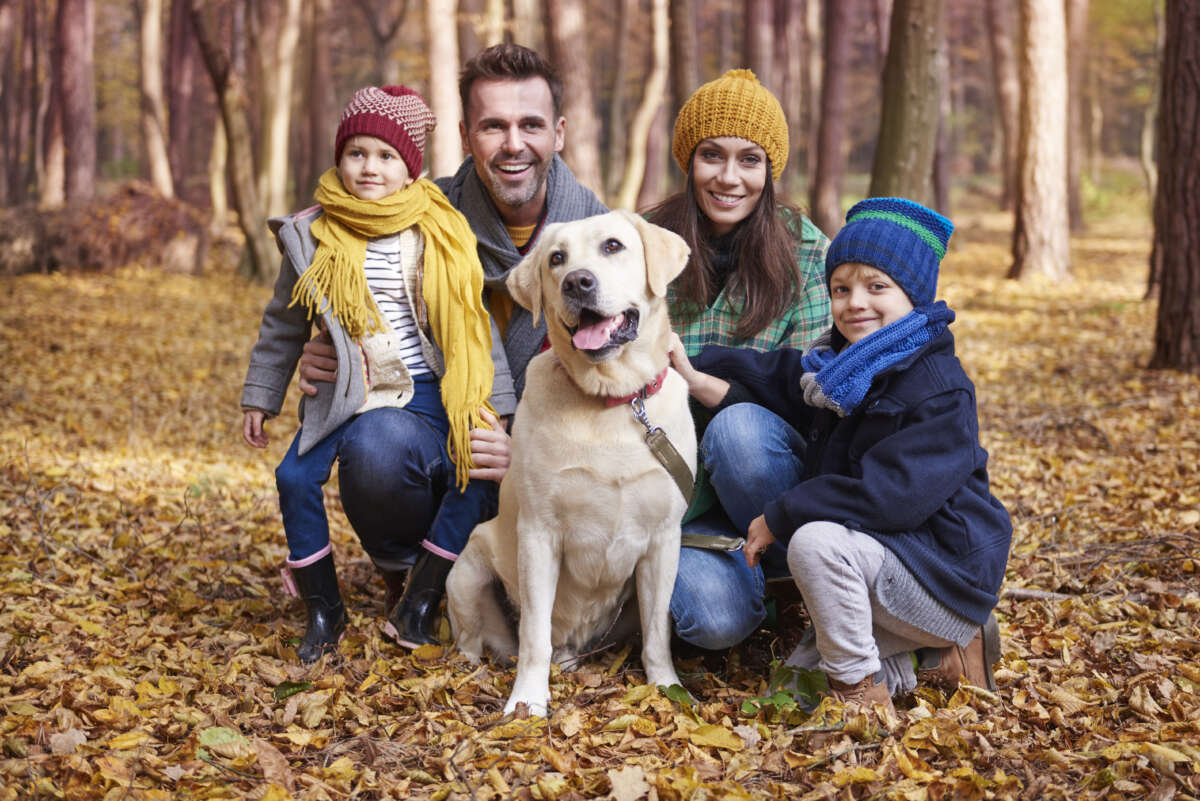- Home
- Blogs
- Pet Training
- Ideal Dog Companions for Families with Children
Ideal Dog Companions for Families with Children

We firmly believe that no home is truly complete without the companionship of a dog. However, it’s essential to choose a breed that suits a family environment, particularly if there are children involved. When considering adopting a dog into your family, it’s crucial to weigh three vital attributes: temperament, size, and energy level.
Family Friendly Dogs - Top Factors to consider
Temperament:
A dog’s temperament is akin to its personality and plays a pivotal role in its interaction with children. For a family setting, it’s ideal to look for a dog with a calm temperament, as they tend to form stronger bonds with younger, smaller children. A serene dog can create a nurturing environment, fostering a sense of security and comfort among children. In contrast, more outgoing and hyperactive dogs might not be the best fit for families with young kids.
Size:
While size doesn’t determine a dog’s compatibility with children, it’s a factor to consider in relation to temperament and energy level. A larger, high-energy dog could inadvertently knock over small children in moments of excitement. On the other hand, a smaller, calmer dog can be a perfect match due to their manageable size and gentle disposition.
Energy Level:
A dog’s energy level should align with your family’s lifestyle. Energetic breeds are great for active families who love outdoor activities and constant movement. However, these breeds require regular exercise to prevent behavior problems caused by excess energy. Families preferring a more relaxed pace might find low-energy breeds a better match, as they don’t demand as much physical activity.
Best Dog Breeds for Families with Children
Golden Retriever: Patient, smart, and loyal, Golden Retrievers are a favorite for families. They require exercise and love to play, making them great companions for children.
Beagle: Gentle, loving, and entertaining, Beagles have high energy levels, making them perfect playmates for kids.
Labrador Retriever: Playful, protective, and intelligent, Labrador Retrievers are highly trainable and adaptable, making them excellent family dogs.
Cavalier King Charles Spaniel: Friendly and calm, this breed is perfect for families desiring a slower-paced pet experience. They are affectionate and good with children and other pets.
Poodle (Miniature): Smart, obedient, and playful, Miniature Poodles are easy to train and bond well with family members, making them a recommended family breed.
Vizsla: Affectionate and loyal, Vizslas form strong bonds with family members. They require ample exercise and are better suited for families with older children.
Havanese: Smart and entertaining, Havanese dogs are quick learners and enjoy entertaining their owners, making them an excellent choice for families with children.
In conclusion, selecting a dog that matches your family’s lifestyle and preferences is essential for fostering a harmonious and joyful relationship between your pet and your loved ones. Take the time to consider these attributes, and you’ll find the perfect furry companion to enrich your family life. Additionally, if you’re seeking guidance on training your dog, we invite you to explore this blog.

BRINGING A NEW DOG TO YOUR HOUSEHOLD
Introducing a new dog to your home often involves an adjustment period as the furry companion learns to navigate its new environment. This period of adaptation is entirely normal and essential for the dog to comprehend its surroundings. Establishing a consistent daily routine with your new pup is crucial. This routine should encompass dedicated playtime, periods of rest, and quality time spent together, helping the dog acclimate and fostering a sense of stability and security.
Doggie daycare centers operate on well-organized schedules, providing specific times for play, meals, and rest. Similar to children, dogs thrive on consistency and routine. Establishing a regular daily schedule at home offers your dog a sense of stability and assurance. This structured routine helps your pet comprehend expectations, enhancing the effectiveness of training sessions. Consistent feeding times, walks, play sessions, and bedtime rituals contribute to a balanced and contented dog, reinforcing the positive behaviors you aim to instill.
By integrating these valuable lessons from doggie daycare into your training approach, you can transform your dog into a well-mannered, self-assured, and socially adept companion. Remember, training is a continuous journey that demands patience, perseverance, and a generous dose of love. Applying these daycare-inspired techniques not only fosters a respectful bond with your furry friend but also establishes a harmonious coexistence that both you and your pet will cherish. Get in touch with us now if you’re seeking a reliable and professional dog daycare center that offers top-notch care and valuable lessons for your dog companion.
Happy training!
.webp)






